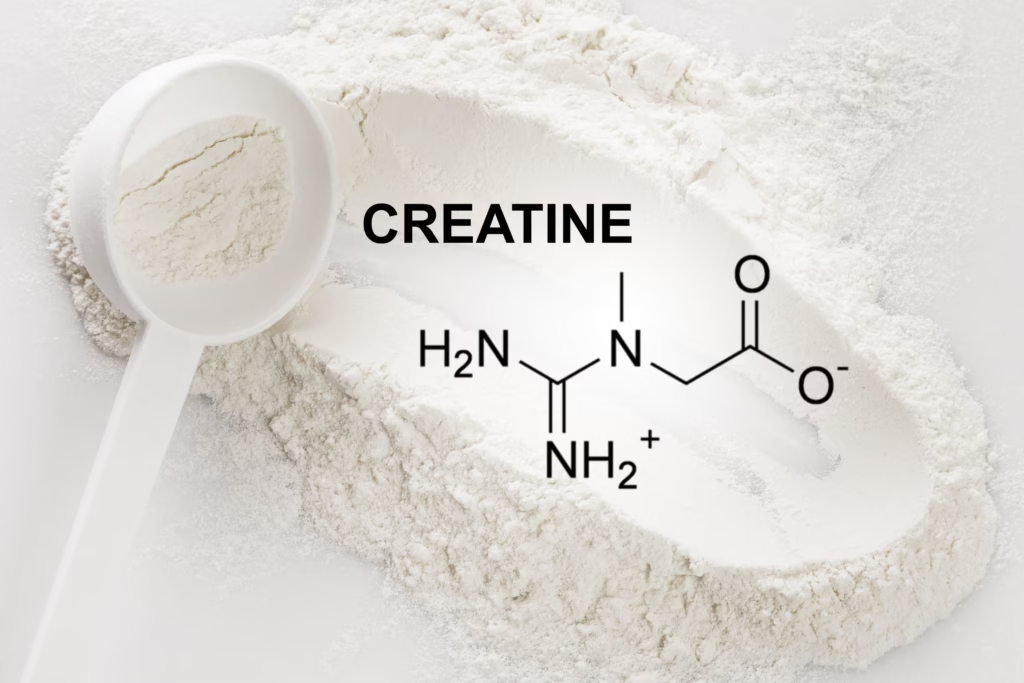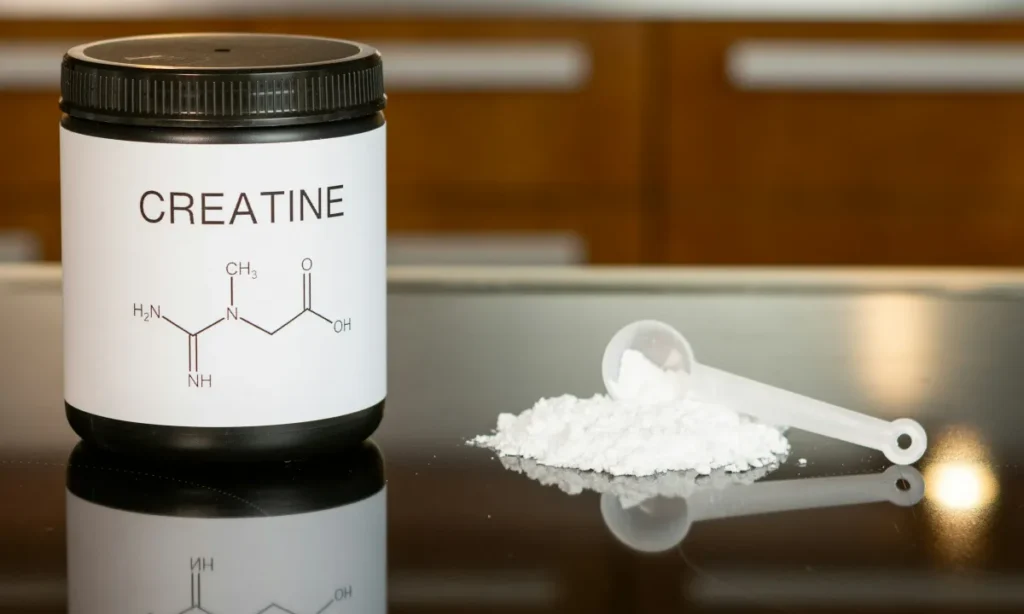Creatine supplementation is one of the most extensively researched and widely used dietary strategies, renowned for its efficacy in enhancing athletic performance, supporting muscle growth, and potentially offering cognitive benefits. This naturally occurring compound plays a pivotal role in energy production, particularly during high-intensity, short-duration activities.
What Is Creatine?
Creatine is synthesized in the human body from the amino acids glycine, arginine, and methionine. Approximately 95% of the body’s creatine is stored in skeletal muscle as phosphocreatine, while the remaining 5% resides in the brain, liver, kidneys, and testes. Phosphocreatine serves as a rapid reserve for regenerating adenosine triphosphate (ATP), the primary energy currency of cells, thereby facilitating improved performance during short bursts of intense physical activity.

Benefits of Creatine Supplementation
1. Increased Muscle Mass and Strength:
Supplementing with creatine, especially when combined with resistance training, has been shown to enhance muscle mass and strength. This is attributed to increased water content in muscle cells and improved performance during high-intensity exercises.
2. Enhanced Exercise Performance:
Creatine supplementation can improve performance in high-intensity, short-duration activities such as sprinting and weightlifting by increasing the availability of ATP.
3. Accelerated Recovery:
Creatine may aid in faster recovery post-exercise by reducing muscle cell damage and inflammation, thereby decreasing recovery time between sessions.
4. Cognitive Benefits:
Emerging research suggests that creatine supplementation may confer cognitive benefits, including improved memory and processing speed, particularly in individuals with lower baseline creatine levels such as vegetarians and older adults.
How to Use Creatine
Loading Phase:
A common approach involves a loading phase where individuals consume 20–25 grams of creatine daily, divided into 4–5 doses, for 5–7 days. This strategy rapidly saturates muscle creatine stores.
Maintenance Phase:
Following the loading phase, a maintenance dose of 3–5 grams daily is recommended to sustain elevated creatine levels.
Alternative Approach:
Alternatively, individuals may opt to skip the loading phase and consume 3–5 grams daily from the outset. While this method takes longer (approximately 3–4 weeks) to saturate muscle creatine stores, it is equally effective over time.
Timing:
Creatine can be taken at any time of the day; however, some studies suggest that post-workout ingestion may be slightly more effective due to increased insulin sensitivity, which can enhance creatine uptake into muscles.
Safety and Side Effects
Creatine is generally considered safe for healthy individuals when used at recommended dosages. Common side effects may include:
- Water Retention: An increase in water content within muscle cells may lead to temporary weight gain.
- Gastrointestinal Issues: Some individuals may experience stomach cramps, nausea, or diarrhea, particularly when taking large doses at once.
Individuals with preexisting kidney or liver conditions should consult a healthcare provider before initiating creatine supplementation, as there is limited research on long-term safety in these populations.

Creatine and Cognitive Function
Beyond its physical performance benefits, creatine supplementation may also support cognitive function. Research indicates that creatine can enhance memory and processing speed, particularly in tasks requiring short-term memory and quick thinking. These effects are more pronounced in individuals with lower baseline creatine levels, such as vegetarians and older adults.
Conclusion
Incorporating creatine into your supplement regimen can offer significant benefits for both physical performance and cognitive function. By understanding the appropriate usage protocols and potential side effects, individuals can make informed decisions to safely and effectively utilize creatine to support their health and fitness goals.
For a comprehensive overview of various workout supplements and guidance on selecting the right ones for your fitness journey, explore our Workout Supplement Buying Guide.
Additionally, delve deeper into understanding protein powders and how to choose the best option for your dietary needs in our detailed article.
